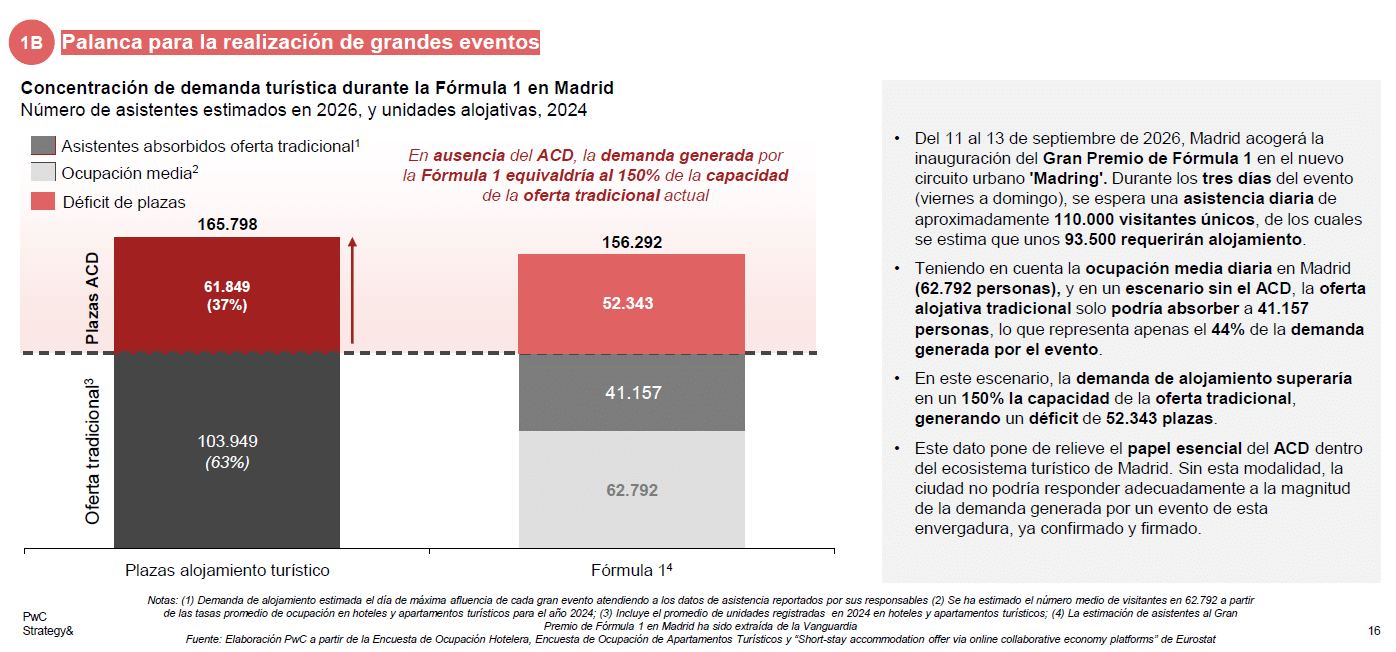Here’s the translation into American English:
—
A recent report by PwC, commissioned by Madrid Aloja, has revealed that short-term rentals (STR) contribute €2.098 billion to Madrid’s economy, which is approximately 1.2% of the capital’s GDP. This study, conducted using data from various public and private sources, warns about the potential negative consequences that could arise from certain restrictions on this type of accommodation, often chosen by families.
The report highlights that eliminating STRs would not only jeopardize this significant economic contribution but also fail to resolve the city’s housing scarcity issues. Madrid Aloja has advocated for clear, proportional regulations based on objective data, aiming to balance community coexistence with the need to preserve Madrid’s economic development, including the city’s ability to host major international events.
Adolfo Meras, president of Madrid Aloja and vice president of the Spanish Federation of Associations of Holiday Homes and Tourist Apartments (FEVITUR), emphasized the importance of public policies recognizing the role of short-term rentals and promoting a regulatory framework that encourages their responsible development. Meras stressed that these accommodations are essential not only for economic growth but also for maintaining Madrid as an attractive destination for various large-scale events.
The report also states that STR activity generated 35,273 jobs in Madrid last year, accounting for 2.1% of total employment in the city. It highlights that 64% of these jobs were created indirectly in key sectors such as dining, retail, and leisure, demonstrating the interconnectedness of this sector with other economic areas.
STRs have proven essential in meeting demand during major events, such as concerts by Taylor Swift and Duki, as well as the Mad Cool festival and FITUR. Without them, Madrid could have faced a deficit of up to 20,000 accommodation units, a gap that the traditional hotel sector could not have filled. This role will become even more critical in 2026 with the hosting of the Formula 1 Grand Prix, which is projected to attract over 93,000 visitors to the city.
Additionally, the study indicates that short-term rentals have become a preferred option for visitors, with a quarter of them choosing this alternative. The market share of STRs has increased by five percentage points since last year, particularly highlighting the interest of families and groups who value space as well as a more economical option.
The report also shows a trend toward the decentralization of tourism in Madrid, with STRs available in all districts. This phenomenon not only helps reduce congestion in the center but also boosts the revitalization of less touristy neighborhoods. In contrast, the traditional accommodation offerings do not adequately cover all districts, which could intensify saturation in the busiest areas if STRs were eliminated.
Finally, PwC concludes that there is no direct correlation between the presence of short-term rentals and rising prices in Madrid’s real estate market. In fact, these rentals represent only 1.1% of the total housing stock in the city, and the analysis reveals that areas with the highest rental price increases have minimal STR presence.
—
Let me know if you need any adjustments or further assistance!
via: MiMub in Spanish
